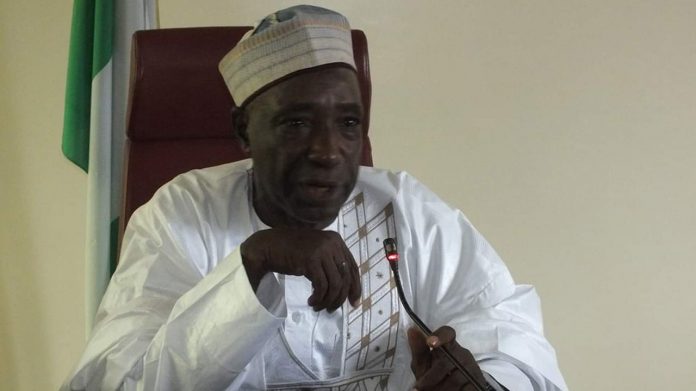The minister of Agriculture and Rural Development, Alhaji Sabo Nanono, has inaugurated an 18-member committee for the implementation of the federal government’s $1.1 billion Agriculture mechanisation programme.
The programme tagged ‘The Green Imperative Programme (GIP)’ is funded by the Brazilian government through a credit facility from the Deutshe Bank (DB) Development Bank of Brazil and the Islamic Development Bank.
The minister while inaugurating the committee at the weekend in Abuja, said the committee is pivotal to the enhancement of agricultural mechanisation in Nigeria and will further develop agriculture based on a model that will involve technology.
He said the take-off of the programme was timely in view of the need to feed the Nigerian population estimated at 200 million, and other African countries that rely on Nigeria for food and seeds.
According to him, “This is going to be one of the most important agricultural programmes of this administration. For us to accomplish our mission, it is not going to be business as usual. In fact this programme is going to be private sector driven with the federal government providing the enabling environment.”
He informed that Nigeria is expected to repay the loan at three per cent interest rate over a period of 15 years for Development Bank of Brazil including two years moratorium for the DB.
The program is to benefit about 100,000 young people directly and about five million indirectly. It is also designed to enable Nigeria acquire 10,000 units of tractors and 50,000 units of assorted implement and equipment for assembly in Nigeria.
Furthermore, the program was designed to ensure training of project beneficiaries for over 10 years and establishment of 780 service centres to assist smallholder farmers to prepare the soil, cultivate and harvest farm produce.
GIP was further designed to enhance agricultural mechanisation specialised extension services and agro-processing in the 774 local government areas and the six area councils in the Federal Capital Territory (FCT).
Nanono, who is also chairman of the committee, however, emphasised on the need to prioritise agricultural mechanisation in Nigeria, adding that there is no way a nation can feed about 200 million people and get surplus for agro-allied industries using manual labour.
The minister while lamenting that findings revealed that the country has only 7000 functional tractors, expressed optimism that the programme, which would have service centres in 632 local government areas and 140 processing centres, would achieve its mandate in view of the dire need to boost production in the country.
“We have only 7,000 functional tractors in this country. We have only seven tractors per 100 square kilometres compare that with Kenya that has 27 tractors per 100 square kilometres. The standard is 127 per square kilometres. So you can imagine the task before us,” he said, adding, “All these noise about this project we are launching today is aimed at only 10,000 tractors. So to even catch up with Kenya, we need to have 60,000 tractors, you can imagine the task before us.”


